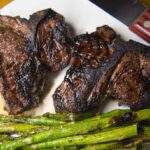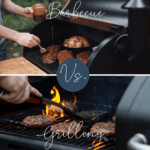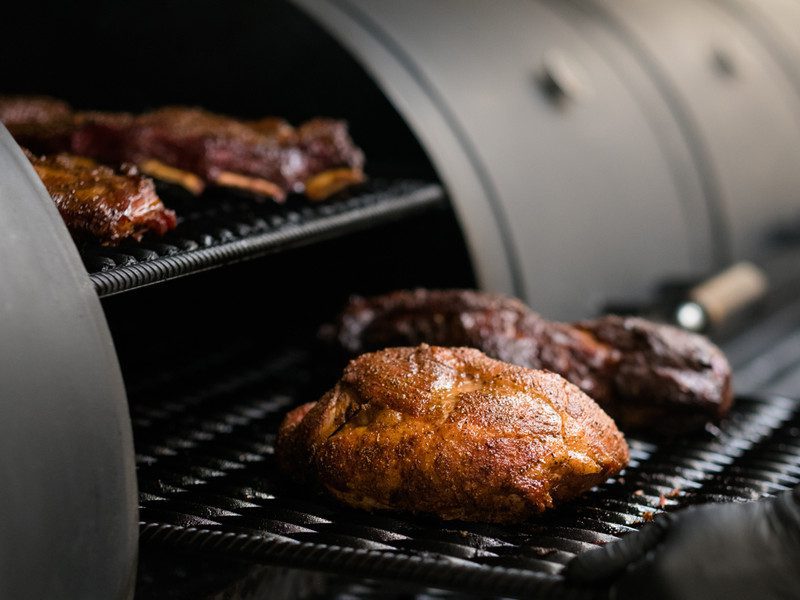
Imagine being at a backyard cookout in the South, surrounded by the mouthwatering aroma of sizzling meat on the grill. As you indulge in the deliciousness, you can’t help but wonder – what do Southerners actually call this beloved culinary tradition? Well, look no further because “What Do Southerners Call a BBQ?” has the answers you seek.
This intriguing product takes you on a journey through the diverse Southern states, uncovering the unique names and vibrant cultural nuances behind this cherished cooking style. So, get ready to unravel the delicious mystery and gain a deeper understanding of the rich traditions that make Southern BBQ truly special.
Regional Variations in BBQ Terminology
Overview of Regional BBQ Terms
When it comes to barbecuing in the United States, there is a rich tapestry of regional differences in terminology. From the types of meat used to the cooking techniques employed, each region proudly embraces its own unique BBQ culture.
However, one often overlooked aspect of BBQ variation is the terminology used to describe this beloved culinary tradition. In this article, we will explore the regional variations in BBQ terminology, examining the different names and terms used in various Southern states.
Alabama: Barbecue or just BBQ
In Alabama, the terminology used to describe BBQ varies depending on the context. Generally, Alabamians refer to this smoky and delectable cuisine as “barbecue.”
However, in more casual conversations, it is not uncommon for the term “BBQ” to be used instead. This regional variation in language adds to the charm and uniqueness of Alabama’s BBQ culture.
Georgia: Barbecue or Barbeque
When it comes to naming BBQ in Georgia, both “barbecue” and “barbeque” are widely accepted. While some people in the state prefer the traditional spelling of “barbecue,” others opt for the shortened and more phonetic spelling of “barbeque.” This subtle difference in spelling highlights the diverse linguistic landscape of Georgia’s BBQ scene.
South Carolina: BBQ or Barbecue
South Carolina is known for its rich BBQ traditions, and the state’s terminology reflects this passion for smoked meats. In South Carolina, BBQ is often referred to simply as “BBQ.”
However, the term “barbecue” is also used interchangeably, reflecting the state’s close ties to its Southern roots. No matter the term used, South Carolinians take great pride in their unique style of BBQ.
North Carolina: BBQ or Barbecue
North Carolina boasts its own distinct style of BBQ, and the terminology used to describe it is no exception. In the Tar Heel State, both “BBQ” and “barbecue” are commonly used to refer to this beloved culinary tradition.
However, the key distinction lies in the type of meat used. In eastern North Carolina, BBQ typically refers to whole-hog, vinegar-based pulled pork, while in western North Carolina, it often refers to smoked pork shoulder with a tomato-based sauce.
Tennessee: BBQ or Barbecue
In Tennessee, the terminology used to describe BBQ is closely tied to the state’s vibrant BBQ culture. Both “BBQ” and “barbecue” are widely accepted and used interchangeably. However, the real point of pride for Tennesseans is the unique style of BBQ found in different regions of the state.
From the smoky flavors of Memphis-style ribs to the tangy and sweet sauces of Nashville-style hot chicken, Tennessee’s diverse BBQ terminology reflects the rich culinary heritage found within its borders.
Texas: Barbecue
When it comes to BBQ, there is perhaps no state more synonymous with this culinary tradition than Texas. In the Lone Star State, BBQ is typically referred to as “barbecue.” Texans take their BBQ seriously, with a focus on slow-cooked meats like brisket, sausage, and beef ribs.
The use of the term “barbecue” in Texas reflects the state’s pride in its BBQ heritage and the elevated status of this beloved cuisine.
Kentucky: BBQ
Kentucky has its own unique style of BBQ, and the terminology used to describe it follows suit. In the Bluegrass State, BBQ is commonly referred to simply as “BBQ.” This straightforward term reflects the no-nonsense approach to cooking and enjoying BBQ in Kentucky.
From the mutton and burgoo of Owensboro to the pitmasters of Louisville, Kentucky’s BBQ culture is steeped in tradition and flavor.
Mississippi: Barbecue or BBQ
Mississippi’s BBQ terminology offers a range of options for describing this beloved cuisine. In the Magnolia State, both “barbecue” and “BBQ” are commonly used to refer to this smoky and mouthwatering tradition.
The variety of terms reflects the diverse BBQ styles found throughout Mississippi, from the tangy vinegar-based sauces of the north to the spicy and savory flavors of the south.
Florida: BBQ or Barbecue
While Florida may not be the first state that comes to mind when thinking about BBQ, the Sunshine State has its own regional variations in terminology. In Florida, both “BBQ” and “barbecue” are used to describe this beloved culinary tradition.
Florida’s BBQ scene brings together influences from various regions, creating a unique fusion of flavors that can satisfy any BBQ enthusiast.
Dialectical Differences in Naming BBQ
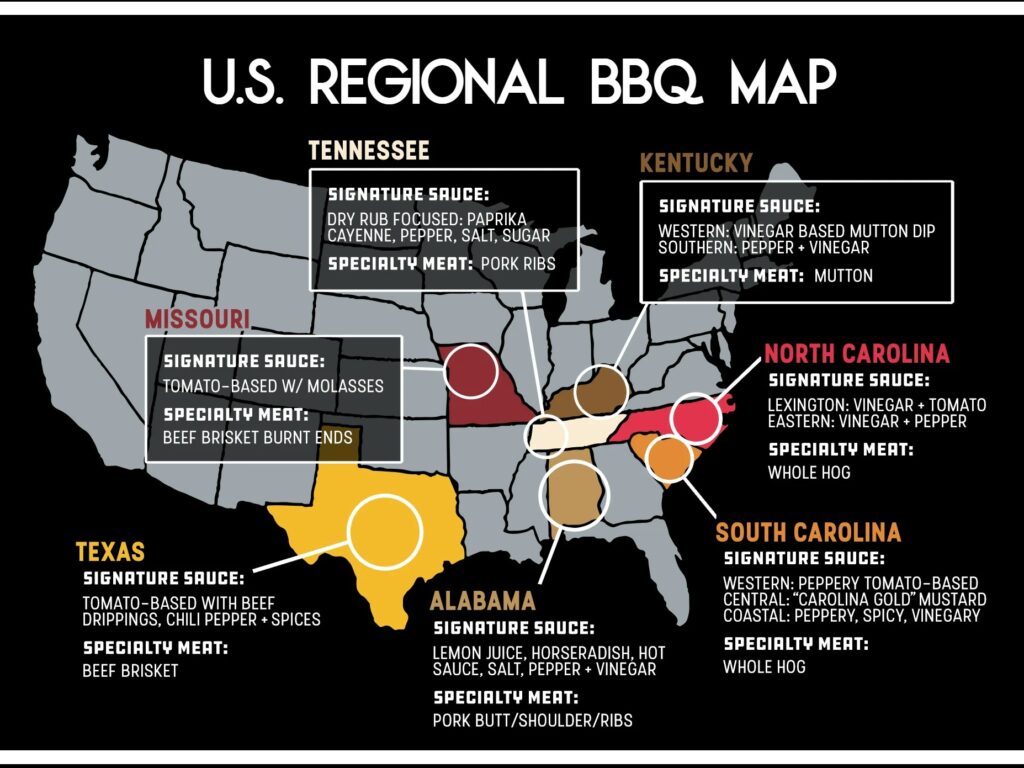
This image is property of cdn11.bigcommerce.com.
Accents and Dialects of the American South
The American South is known for its rich dialects and accents, which often play a role in the unique terminology used to describe BBQ. From the drawl of the Deep South to the twang of Appalachia, the accents and dialects of the region influence the pronunciation and spelling of BBQ terms.
This linguistic diversity adds another layer of charm and character to the already distinctive BBQ cultures found throughout the South.
Influence of African-American Vernacular English
African-American Vernacular English (AAVE) has also played a significant role in shaping the BBQ terminology used in the American South. AAVE, which evolved from the African languages brought to the United States during the era of slavery, has left its mark on the language of Southern cuisine.
Many BBQ terms and names have roots in AAVE, reflecting the enduring influence of African-American culture on Southern food traditions.
Influence of Scottish and Irish Language
The strong Scottish and Irish heritage in the American South has also left a linguistic imprint on BBQ terminology. The Scottish and Irish immigrants who settled in the region brought with them their own language and dialects. Some BBQ terms, such as “barbecue,” have Scottish and Irish origins, highlighting the lasting impact of these European languages on the naming conventions of Southern cuisine.
Impact of Native American Terms
The Native American influence on Southern cuisine, including BBQ, cannot be overlooked when exploring the regional variations in terminology. Native American tribes in the South had their own cooking techniques and words for grilling and smoking meat, some of which have been adopted into the BBQ lexicon.
The incorporation of Native American terms into BBQ terminology is a testament to the deep cultural connections between the indigenous people of the region and the food traditions that have evolved over centuries.
Historical Evolution of BBQ Terminology
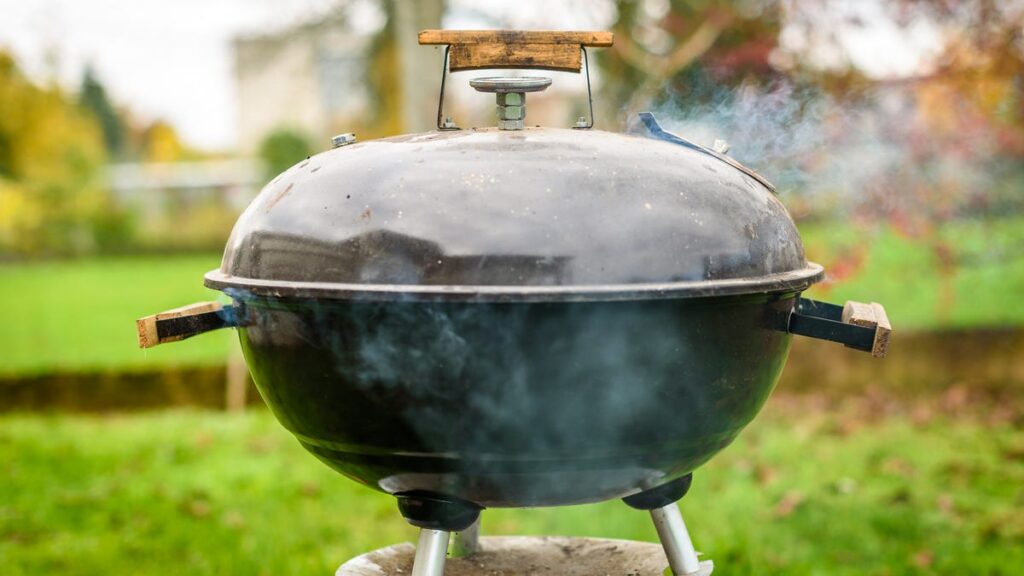
This image is property of i.kinja-img.com.
Origins of Barbecue in the American South
The origins of BBQ can be traced back to Native American and African cooking techniques, which were later influenced by European colonists. In the American South, BBQ evolved as a means of preserving and cooking meat in a time before modern refrigeration.
The term “barbecue” is believed to have originated from the Spanish word “barbacoa,” which referred to a raised wooden structure used for cooking meat over an open fire. Over time, this term became synonymous with the slow cooking and smoking techniques used in BBQ.
Evolution of BBQ Terms over Time
As BBQ spread throughout the American South, so too did the terminology used to describe this culinary tradition. Different regions developed their own unique BBQ styles and names for specific cuts of meat, cooking methods, and sauces.
BBQ terms and terminology evolved alongside the changing tastes and cultural influences that shaped Southern cuisine. While some terms have remained consistent over time, others have adapted or been replaced as BBQ continues to evolve.
Cultural Influences on BBQ Terminology
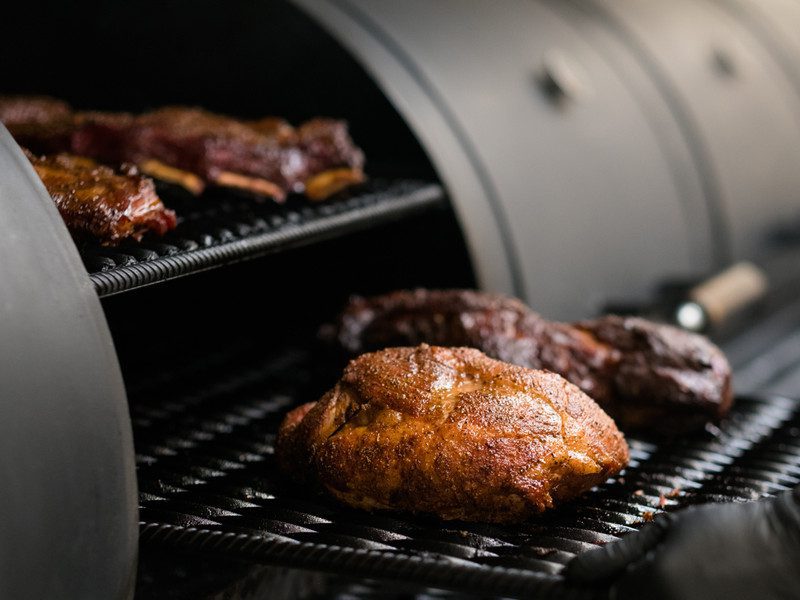
This image is property of cdn11.bigcommerce.com.
The rich cultural tapestry of the American South has had a profound impact on the language and terminology used to describe BBQ. From the African, Scottish, and Irish influences mentioned earlier to the Native American contributions, BBQ terminology reflects the diverse heritage of the region. Cultural exchanges, migration patterns, and the blending of traditions have all shaped the colorful BBQ terminology we see today.
Cultural Significance of BBQ Terminology
BBQ as a Social and Culinary Tradition
BBQ is not simply a method of cooking; it is a cherished social and culinary tradition in the American South. The terminology used to describe BBQ carries with it a sense of community, gathering, and celebration.
BBQ is often associated with family reunions, church picnics, and community events where people come together to enjoy good food and good company. The language used to talk about BBQ reflects the sense of joy, camaraderie, and shared experience that comes with this beloved tradition.
BBQ and Cultural Identity
The terminology associated with BBQ is deeply intertwined with the cultural identity of the American South. Whether it’s the vinegar-based sauces of eastern North Carolina or the smoky flavors of central Texas, BBQ reflects the unique heritage and regional pride of each Southern state.
The language used to describe BBQ is not just a set of words; it represents a connection to history, tradition, and a way of life. BBQ terminology is a source of pride, evoking a sense of place and identity for those who embrace this storied culinary heritage.
BBQ and Regional Pride
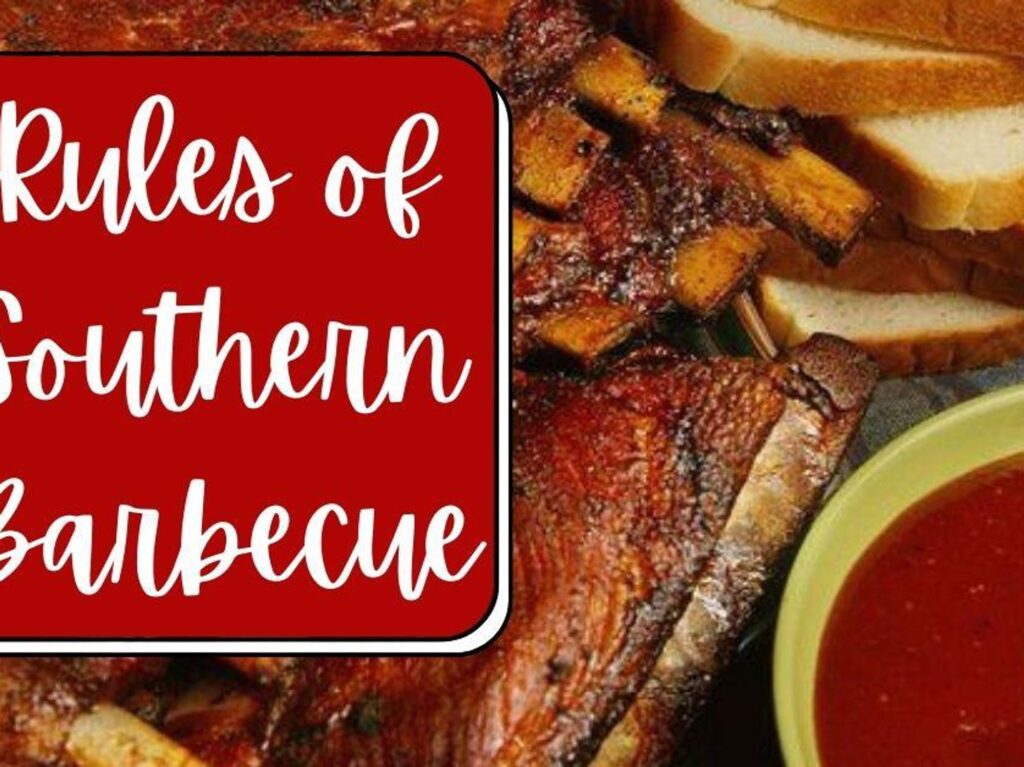
This image is the property of assets.rebelmouse.io.
In the South, BBQ is more than just a type of food; it is a source of regional pride. Each state has its own distinct BBQ traditions, flavors, and terminology, and these differences are fiercely defended and celebrated.
BBQ competitions and festivals showcase the best of each region’s culinary expertise, and the language used to describe BBQ plays a vital role in highlighting these unique regional identities.
The diverse terminology associated with BBQ serves as a reminder that while BBQ may be enjoyed throughout the United States, its heart and soul belong to the American South.

